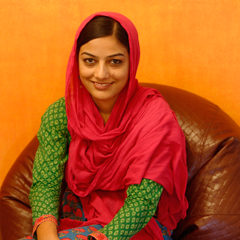
Fazle Hasan Abed from Bangladesh has been awarded the 2015 World Food prize for his unprecedented contribution towards poverty reduction in Bangladesh and 10 other countries.
What is the World Food Prize?
- The World Food Prize was envisioned by Norman E. Borlaug, winner of the Nobel Peace Prize in 1970 for his work in world agriculture.
- Borlaug saw the prize as a means of establishing role models who would inspire others. His vision was realised when The World Food Prize was created in 1986.
Who is Fazle Hasan Abed?
79-year-old Fazle Hasan Abed is the founder of the world's largest non-profit organization BRAC, formerly known as Bangladesh Rural Advancement Committee. BRAC was established in 1972 as a relief operation to help the country recover from its war of independence with Pakistan and also the destruction wrought to it by a tropical cyclone.
- BRAC later shifted its focus to finding new ways to tackle poverty and empower women socially and economically.
- Hasan was also knighted by the British Crown in 2009 and is now called Sir Fazle Hasan Abed.
How relevant is Sir Abed's contribution?
- Since its foundation, BRAC has brought nearly 150 million people out of poverty through increased food security.
- Due to its work on tackling child mortality in Bangladesh in the 1980s, the numbers of deaths have decreased to almost half over a decade.
- BRAC's work to raise the rates of child immunisation had also marked positive results. Between 1986 and 1990, the proportion of immunised Bangladeshi children rose from 2% to 70%. In the areas where the NGO is in operation the immunisation rate is now at 95%.
- The success of BRAC's two -year micro-finance programme launched in 2011 to help 8% of the poor in Bangaldesh, proved that even the ultra-poor could be reached if sufficient resources are made available. The programme has been rolled out in several countries - Ghana, Ethiopia, India, Pakistan, Honduras and Peru -where it has also proved successful.
- The agriculture and food security programmes developed by Abed and BRAC have helped more than 500,000 farmers. The poultry farming project of BRAC has benefited around 1.9 million after introducing them to the experience of making real profit.
- The organisation has now spread its anti-poverty solutions to ten other developing countries, including Afghanistan, Pakistan, the Philippines, Sri Lanka, Liberia, Sierra Leone, South Sudan, Tanzania, Uganda and Haiti. Today, BRAC has a staff of 110,000 workers in these 11 countries.
- According to BRAC, 1.14 million children are currently enrolled in the organisations 38,000 primary and pre-primary schools, and 9.51 million have graduated.
- BRAC's youth empowerment clubs provide life skills training to more than 260,000 teens from disadvantaged backgrounds.
How is Sir Abed's work significant in the context of a country like Bangladesh?
- Despite its dysfunctional politics, Bangladesh has emerged as a role model for other lower-income countries. This could be credited to the unparalleled efforts of BRAC.
- Most importantly, the World Bank announced in June 2013 that Bangladesh had reduced the number of people living in poverty from 63 million in 2000 to 46 million in 2010, despite a total population that had grown to approximately 150 million.
- This means that Bangladesh will reach its first United Nations-established Millennium Development Goal, which is of poverty reduction, two years ahead of the given 2015 deadline.
- Bangladesh is also making progress in reducing its poverty rate to 26 percent of the total population.
What do stalwarts say about Abed and BRAC?
- M S. Swaminathan, the pioneer of India's green revolution, chairman of the World Food Prize Selection Committee and the first World Food Prize Laureate in 1987, has praised Abed as a "strategic thinker, and a man with a future vision."
-"BRAC has done what few others have. They have achieved success on a massive scale, bringing life-saving health programmes to millions of the world's poorest people." said Bill Gates.
- "BRAC in Bangladesh is the best aid group you've never heard of," wrote Nicholas Kirstoff, in a 2013 opinion post on New York Times.



![BJP's Kapil Mishra recreates Shankar Mahadevan’s ‘Breathless’ song to highlight Delhi pollution [WATCH] BJP's Kapil Mishra recreates Shankar Mahadevan’s ‘Breathless’ song to highlight Delhi pollution [WATCH]](https://images.catchnews.com/upload/2022/11/03/kapil-mishra_240884_300x172.png)

![Anupam Kher shares pictures of his toned body on 67th birthday [MUST SEE] Anupam Kher shares pictures of his toned body on 67th birthday [MUST SEE]](https://images.catchnews.com/upload/2022/03/07/Anupam_kher_231145_300x172.jpg)






_in_Assams_Dibrugarh_(Photo_257977_1600x1200.jpg)